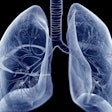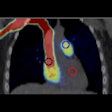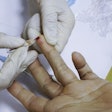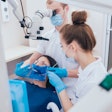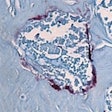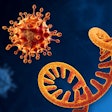Tobacco alters one of the bacteria responsible for periodontitis, suggesting a reason why smokers are more likely to suffer from the disease, according to University of Louisville researchers.
Their study, published in Environmental Microbiology (May 2009, Vol. 11:5, pp. 1242-1253), showed that the bacterium Porphyromonas gingivalis adapts and changes its DNA and membrane proteins in response to cigarette smoke.
Several genes of P. gingivalis associated with its virulence (infectivity), detoxification, oxidative stress mechanisms, and DNA repair are altered by exposure to cigarette smoke. As a result, the expression of a number of the proteins in the cell membrane is changed. This affects important characteristics of the bacterial cells themselves and how the immune system recognizes this pathogen.
This could explain why smokers are more likely to be resistant to treatment for periodontitis and are more susceptible to oral disease caused by infection with P. gingivalis, the researchers noted.
The discovery could lead to new treatments for P. gingivalis, said researcher David Scott, Ph.D., in a press release. "It has long been known that smokers are more susceptible to periodontitis than are nonsmokers," he said. "However, the reasons why are not so clear. Our study shows, for the first time, that components in cigarette smoke alter key characteristics of a major bacterial pathogen which, subsequently, changes how our immune system reacts to it. It may turn out that we need to develop alternate treatment plans for smokers and nonsmokers."
Copyright © 2009 DrBicuspid.com








